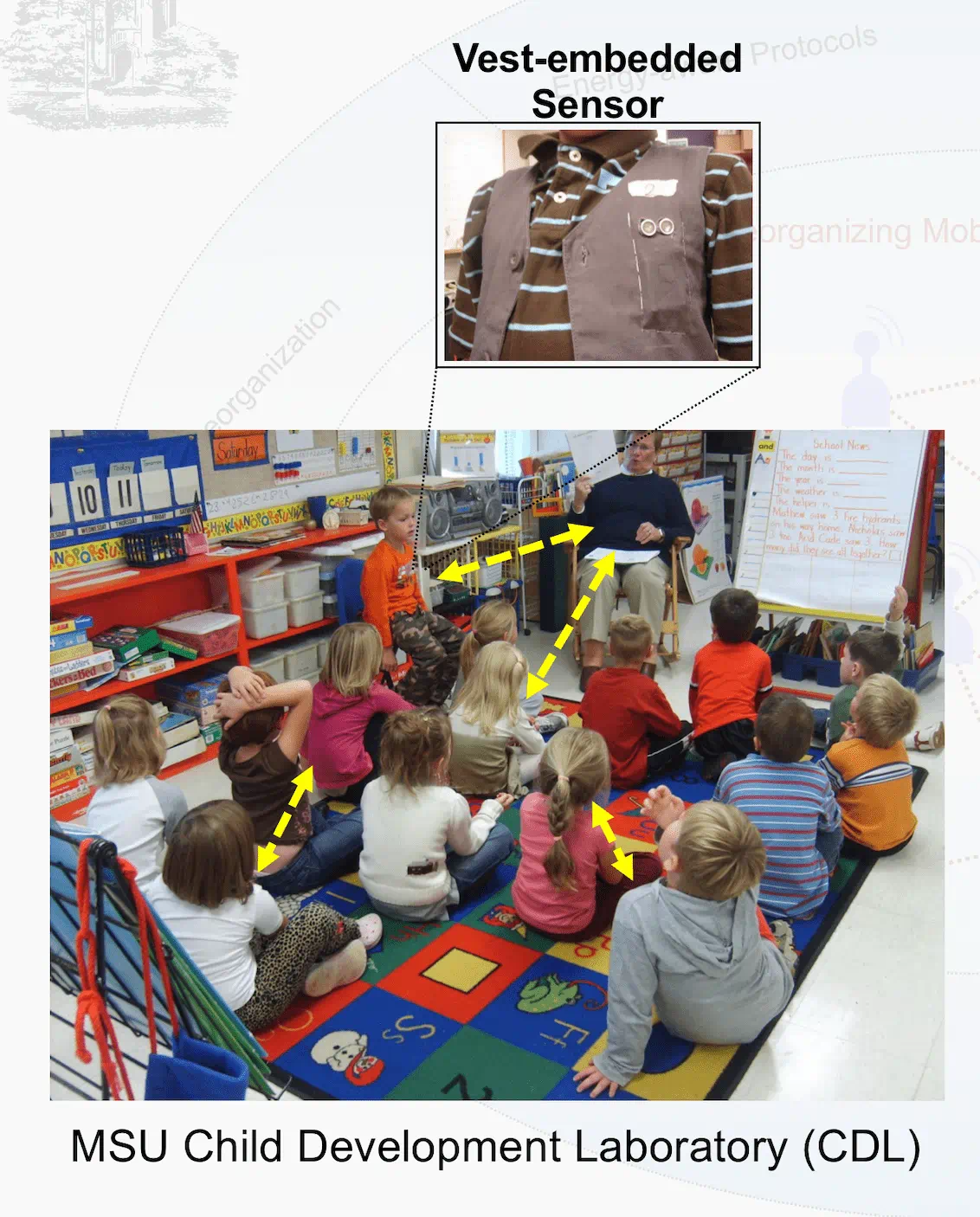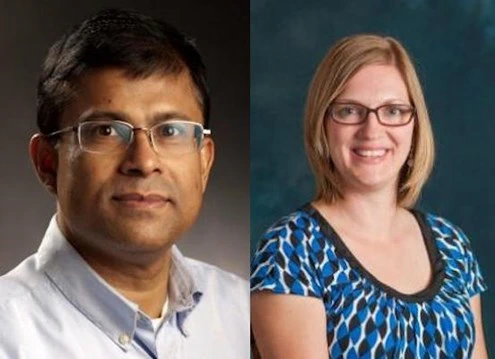Michigan State University researchers are using AI to help improve peer engagement for children with developmental disabilities and providing feedback to educators to improve outcomes for these students.
The research, made possible by a $600,000 grant from the National Science Foundation, is expected to be completed in the summer of July 2026. Children will use technology called a Wearable Human Interaction Tracker, or WHIT, which will track parameters such as the child’s location, frontal orientation, speech and movement. The data, acquired from children in classrooms, will be used in a pair-wise manner and combined to infer peer interactions.

The project is led by principal investigator Subir Biswas, professor in the Department of Electrical and Computer Engineering in MSU’s College of Engineering, and co-principal investigator, Sarah Douglas, an associate professor in the Department of Human Development and Family Studies in MSU’s College of Social Science.
When two people each wearing the name label-sized tag interact, the engagement is tracked by the WHET sensors and wirelessly uploaded.
“The technology of collecting behavioral data and applying modern AI techniques to infer a child’s mood is the key enabler of the project,” said Biswas. “We are developing an end-to-end full cycle system that starts at collecting data from children’s bodies via wearables and ends with machine-interpreted algorithmic observations and interventions.”
The results from the technology will be very helpful to teachers in gathering data about social interactions for children with autism and developmental disabilities.
According to Douglas, “Early childhood teachers play a key role in supporting social development, but they have many responsibilities and are often unable to gather data about social interactions. Leveraging technology to provide them with data and help them make instructional decisions can accelerate supports for children with social challenges.”

Once the technology can be scaled up to a teacher-feedback system to improve educator interventions with students, these project findings also can be applied to students with depression, anxiety and other mental health conditions who experience social isolation.
“This paradigm of data-centric and algorithmic behavior management can be revolutionary for managing autism and other disorders with social peer-engagement deficits in school, home and other social settings,” Biswas said.
About the MSU Innovation Center:
The MSU Innovation Center is dedicated to fostering innovation, research commercialization, and entrepreneurial activities from the research and discovery happening across our campus every day. We act as the primary interface for researchers aiming to see their research applied to solving real-world problems and making the world a better place to live. We aim to empower faculty, researchers, and students within our community of scholars by providing them with the knowledge, skills, and opportunities to bring their discoveries to the forefront. Through strategic collaborations with the private sector, we aim to amplify the impact of faculty research and drive economic growth while positively impacting society. We foster mutually beneficial, long-term relationships with the private sector through corporate-sponsored research collaborations, technology licensing discussions, and support for faculty entrepreneurs to support the establishment of startup companies.
Is your organization interested in sponsoring further developmental disabilities research? Click Here.
